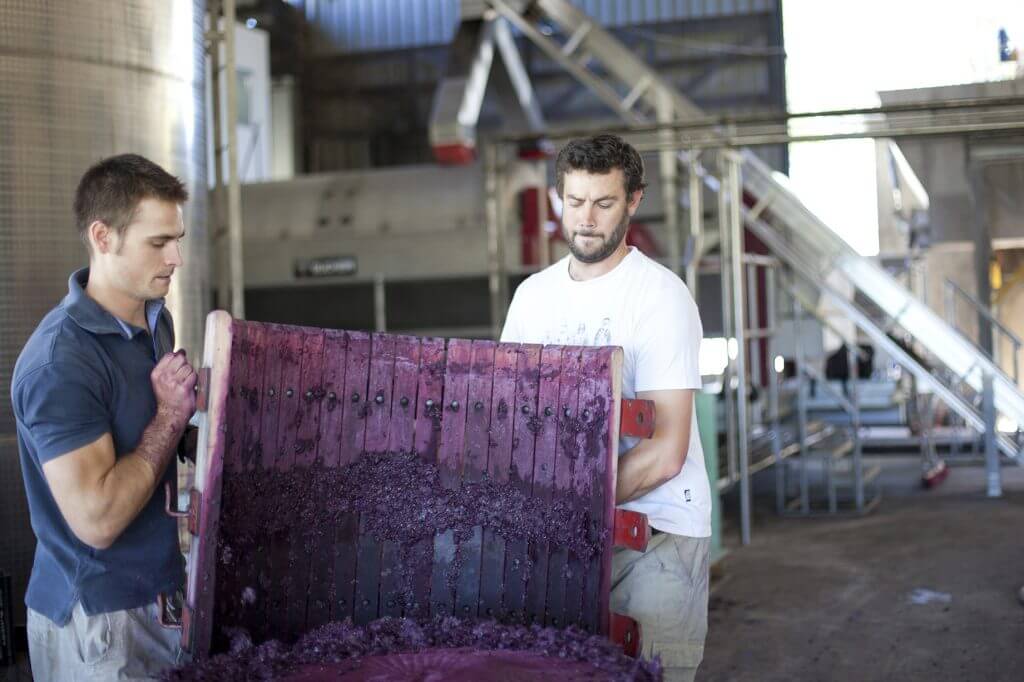Natural Wine
What to Expect From Natural Wine
Natural wine is here to stay. And before you ask – but isn’t all wine natural? The short answer is no. Yes, wine is a natural product, a result of fermenting grapes, but conventional wine, the stuff most often bought in supermarkets and online, isn’t natural in terms of what wine should be. Here is our explanation of What to Expect From Natural Wine…
Natural wine contains nothing other than grapes, love and minimal intervention.
Conventional wine, on the other hand, is made by manipulating the grapes on the vine and in the winery.
Winemakers of conventional wines like to control every aspect of wine production in order to maximise profits, most notably at the detriment of the environment – all so they can manage a wine’s taste, flavour, mouthfeel and aroma. And conventional wine contains more than just grapes. It can contain a wealth of different wine additives including sulphites. Not to mention the pesticides, fungicides and other chemicals used during the grape growing part of winemaking. Then there are the chemicals used during the fining and filtering process. Once you find out what are sulphites and how they affect the wine, you’ll probably want to know more about sulphite free wine.
Conventional wine is as far away from nature as you can get.
- Learn more about low histamine wine and how natural wines are perfect for those who suffer from this substance in wine.
What to expect from natural wine
What is natural wine? Natural wine is a wine that contains grapes only. Nothing extra is added, not even yeast to aid fermentation. No adding sugar content in wine to speed up the fermentation or enhance the taste. A natural wine vintner relies on the natural yeast present on the skins of the grapes to ferment the juice and turn the grape liquid into wine. Nothing is put into it, nothing is taken away from it.
In fact, natural wine is left as untouched as possible.
So what else can you expect from natural wine?
Natural wine starts in a natural vineyard
Natural wine starts life with grapes that have been grown without the use of any chemicals – the grapes are as clean as they can be. A vineyard that produces natural wine will typically adhere to organic or biodynamic farming methods in order to ensure the grapes are uncontaminated.
If you were to visit a vineyard growing grapes to be made into natural wine, you won’t find perfectly manicured vines trimmed to within an inch of their lives. Nor will you see the soil beneath the vines clear of any other plant material. Nor will you be greeted with deafening silence. What you’ll find is the opposite of this: grapes grown for natural wines are grown on either organic or biodynamic vineyards, meaning the farmer will employ the use of cover crops to ensure the soil remains fertile and full of worms and nutrients. The farm will be considered a part of the whole ecosystem so animals and insects are encouraged (within reason) to propagate the ecosystem and ensure minimal impact on the surrounding environment.
Natural wines can be cloudy
Natural wines tend to be cloudy in appearance because unlike conventional wines, they aren’t filtered or fined. Natural winemakers embrace the au natural state of their produce, sediment and all. So if you prefer your wine less cloudy, give the contents of the bottle time to settle before pouring.
- Low alcohol wine is also one of the benefits of natural wines. Discover the best low alcohol wines.
Natural wines can be fizzy
When you ferment anything (even conventional wine), one of the natural by-products of the fermentation process is carbon dioxide, which can result in a fizzy elixir. But this fizz is undesirable in conventional wines, so the winemakers tend to remove the gas from their produce.
Natural winemakers on the other hand embrace the bubbles as it’s all part of the natural wine experience. If you don’t like the fizz on your tongue, simply decant your bottle of natural wine and swirl the contents around to dissipate the bubbles.
- Learn more about natural sparkling wines, so-called pet nat wine.
Natural wine can have an odd tang
That’s not to say natural wine tastes peculiar, it’s just if you’ve never tasted it before, it can catch you off guard. Because natural wines rarely taste anything like its refined counterpart – conventional wines.
In fact, natural wine has been described as sour or having a funky aroma that some imbibers have likened to the sour notes of cider or kombucha. And that is perfectly normal. Because natural wine, like cider and kombucha, is fermented over a longer period allowing the grape juice to fully ferment into wine. Conventional wines on the hand have chemicals added to expedite the process.
When it comes to the taste of natural wine, in reality, not many natural wines are similar for several reasons. Firstly there is a great range of flavours and aromas due to the different wild yeasts that are found in each vineyard. Then there are the different terroirs in which the grapes are grown. And finally, the different fermentation methods of each natural vintner will impart different flavour notes.
- This is a perfect opportunity to discover how long does wine last and if there is any difference between natural and conventional wine.
Final thoughts on natural wine
Natural wine isn’t for everyone, and that’s cool, we totally understand. Sometimes you aren’t in the mood for an unexpected flavour surprise, sometimes you want something comforting and familiar, and constant. And we totally get that too. All we ask is that you don’t write off natural wine as a fad, as something so far removed that it’s an alien concept to you – because natural wine isn’t alien. It’s as close to wine as wine can be. And it’s a movement that is only gaining in strength. So if you haven’t already, grab a bottle, sit down with friends and share the experience.
We don’t brand any of our wines as “Natural”, as all the wineries we work with are incredibly mindful of their practices and nothing is heavy-handed, commercialised, or adulterated. All are honest expressions of provenance, people and produce.


As much as I love low intervention/natural wines I have been getting almost 50 % of my purchases ruined by mouse taint. These wines are almost always healthy and stable on entry but after swallowing the dreaded rodent is left squealing on the palate. This is a real problem on very low or no SO2 wines and as I understand it it can be more or less eliminated with a slightly higher dose of SO2. Either that or obsessive cleanliness in the fruit and winery/cellar during production. If this problem isn’t dealt with I wonder how much more “Nat wine” I will buy. These wines aren’t cheap, often £25 plus per bottle. Any thoughts on this growing problem.
Transporting bottles sometimes cause problems – this may be a growing issue? It’s a bit of a dodgy topic though, so we rather would not comment much on it… You can find a lot of very decent “Nat wine” under £25…take a look at our site! We may be able to change your thoughts…